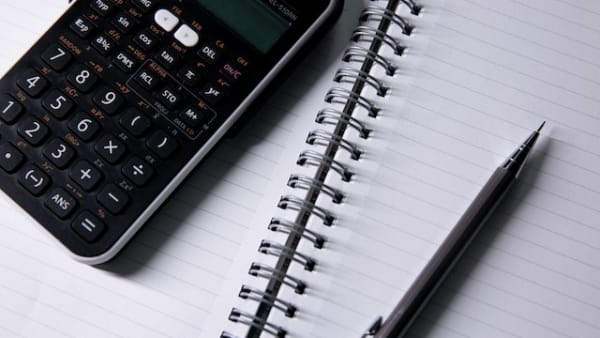What is the ASVAB arithmetic reasoning test?
The ASVAB Arithmetic Test is a part of the wider Armed Services Vocational Aptitude Battery. The ASVAB is a multi-aptitude test that includes several different topics, and it is timed and taken in a specific test center.
A good understanding of basic math principles is important for most jobs, but especially in the armed forces, where the majority of the job roles require technical skills and expertise that will be greatly bolstered by numerical knowledge and understanding.
The best way you can prepare for the test is simply to brush up on your math skills, and get familiar with the test by taking as many past papers as you can before the big day.
The format of the ASVAB arithmetic reasoning test
As part of the ASVAB, you will also have to answer questions on:
- General Science
- Arithmetic Reasoning
- Word Knowledge
- Paragraph Comprehension
- Mathematics Knowledge
- Electrical Information
- Electronics Information
- Auto Information
- Shop Information
- Mechanical Comprehension
- Assembling Objects
Developed and maintained by the Department of Defense, the test is administered to aspiring military applicants as well as high school and post-secondary students.
The ASVAB Arithmetic section of the assessment is essentially a math test, focusing on things like word problems and solving equations.
There are two versions of the ASVAB that are used today. Most candidates will take the computer-based ASVAB, which is a Computer Adaptive Test (CAT-ASVAB). The Arithmetic Reasoning section of the online test lasts for 15 minutes, and you will need to answer up to 30 questions. The pencil and paper version of the assessment gives you some extra time to answer - you have 30 minutes to answer 36 questions if you are not taking the computer version.
The ASVAB as a whole is scored in three ways.
- Standard score: This is a score between 1-100, where 50 is the average.
- Armed Forces Qualification Test score (AFQT): This score is used to decide the functions of the military that you are qualified to join.
- Composite Score: This score is used to determine the particular role in that function that you would be best suited to.
The ASVAB Arithmetic Reasoning test asks questions like those in numerical reasoning assessments. They are about basic mathematical concepts and operations; it is not designed to be so hard that only those with a math degree would be able to answer. The concepts used in the assessment include:
- Arithmetic
- Averages
- Fractions
- Ratios
- Percentages
Key Arithmetic Reasoning Concepts
Arithmetic
The arithmetic questions might be phrased as word problems, but they are all based on simple operations (Multiplication, addition, subtraction, and division).
You will need to be able to complete these operations fast and accurately in your head - in the actual assessment you will not be permitted to take a calculator in.
Averages
In these questions, you will be asked to find and recognize different types of averages. This might include collating a range of numerical information and choosing the mean, the median, and the mode.
The specific use of averages will change depending on the type of data you are being presented.
Fractions
The questions in the ASVAB relating to fractions are all about being able to use them in practical situations. This includes finding the lowest common denominator, expressing fractions as decimals, and multiplying or dividing them.
Ratios
Ratios are useful for comparing the amount of something with the amount of something else - and they are relatively easy to understand in principle. Applying ratio knowledge is not always as easy though - you need to be able to work out how two different numbers are related to each other in relation to a total.
Percentages
In the percentages question, you are most likely to come across word problems around sales tax, discounts, and pre-sale prices to demonstrate that you are capable of adding and subtracting percentages, finding a percentage difference, an increase or decrease, or perhaps multiplying by a percentage.
Example Questions
Arithmetic example question
What is the answer to the below equation?
2 x 8(3+2) - 4 =
a) 56
b) 40
c) 36
d) 32
The answer in this example is c), and to answer you will need to understand the order in which you should complete an equation.
Fractions example question
Express the below fraction in its simplest form:
27/81
a) 1/3
b) 6/9
c) 3/9
d) 18/9
The answer is a) ⅓. To find the simplest form of a fraction you need to divide both the numerator (top number) and the denominator (bottom number) by the same whole number until it can’t be divided anymore.
Percentages example question
You are shopping in a store and you notice that items with a red sticker have an extra 12.5% off of the marked price. There is a shirt that you want to buy with a red sticker that has a marked price of $32 - how much will the discount be worth?
a) $6
b) $4
c) $5
d) $10
The answer is b) 4 - you need to find what 12.5% of $32 is. It isn't necessarily easy to do this without a calculator, but you can establish a specific routine to help you deal with questions like this.
How is the ASVAB arithmetic reasoning test scored?
At the end of the test, you'll be presented with three different scores. The first one is the standard score, which is measured on a scale of 1-100 (with 50 being the median). Results are grouped in tens, which means if you score 60, you're one grouping above the median of 50.
As well as the standard score, you'll also be given an Armed Forces Qualification Test score (this shows which military functions you've scored highly enough to join), and you'll also get a composite score, which helps determine which role(s) within that function you'd be best suited to.
Top tips to pass the ASVAB Arithmetic Reasoning Test
1. Work on mental math skills
As you are not permitted to use a calculator, your mental arithmetic skills are really being tested in the ASVAB Arithmetic Reasoning Test.
The content of the questions on the assessment are not particularly challenging, but you will need to be quick and accurate with your mental math so that you can answer the questions at a good pace.
When you are revising your math knowledge, make sure you are finding reliable methods to help you solve problems quickly.
2. Brush up on the basics
You will have learned everything you need to know to pass the ASVAB Arithmetic Reasoning test when you were at school. However, for some people, this might have been some time ago, or you might have found math at school quite challenging - so you are likely to need to go through and revise.
Go through the main topics (as listed in this article), and make sure that you are confident in answering questions using these operations and principles. Have a good idea of the methods you can rely on (and remember under pressure) so that you can work effectively in the assessment.
3. Take practice tests
Practice tests based on the ASVAB Arithmetic Reasoning test are an excellent resource for your revision. You will be able to see the type of questions that you are going to be asked, the way the questions are phrased, and how you will need to answer them.
You can use your results from a practice test to inform your revision - you can focus your efforts on the areas where you have perhaps scored lower than others.
4. Practice under exam conditions
One of the biggest barriers for test takers is that the test situation is nerve-wracking and unfamiliar. Under pressure, even the most well-educated candidate can flounder with the easiest questions.
Taking a practice test - and ensuring that it is taken with exam conditions (in silence, with a strict time limit, and with no distractions) means that you can become familiar with the way the test works and how fast you will need to answer for the best results.
5. Eat, sleep, and drink
Being able to respond well to pressure is a requirement of the military in many ways, and you can give yourself the best chance for success by fueling your body and mind appropriately.
This means that in the immediate lead-up to the assessment, you need to get good sleep - aim for between 6-8 hours a night for the best results - and eat healthily. You might want to focus on foods that have been linked with brain health and development like oily fish and broccoli, but any sort of balanced diet will make a difference.
Hydration will help prevent that afternoon slump and ensure that you are on form for the whole assessment, not just for the arithmetic reasoning section.
6. Bring everything you need
It is likely that you will have to travel for your assessment, so make sure that you know what you have to bring. In some cases, you might be completing more than one evaluation process on the same day.
You will need to bring an appropriate ID, and you might be instructed to bring lunch, for example.
7. Get there early
Plan your journey to the test center so that you get there in plenty of time. You might need to sign in and fill out some forms before you get started, and if you arrive too late you will be flustered and in some cases, you might not be allowed to take the assessment at all.
8. Read the instructions
Whether you have completed hundreds of practice questions or you are relatively new to the structure, the best thing you can do is to read the questions carefully before you start answering. Some of the word problems, in particular, have extraneous words or unhelpful details that might put you off the equation that you have to complete.
Taking extra time to read the instructions will help you avoid missing out on easy marks.
9. Use time efficiently
Knowing that you have a tight time limit can put you under pressure, and it is important that you answer questions efficiently. To do this, make sure that you don't spend too much time on the more difficult questions - you could miss out on the opportunity to get easier marks in a later question.
The CAT-ASVAB is computer adaptive, so if you do take a long time to answer (or get it wrong), the next question will be easier.
10. Don’t panic
While you might be feeling the pressure of the ASVAB, knowing that the result will have a lasting impact on your future career in the military, you need to try and relax in the assessment to get the best results. While nerves are natural - and some might say that they are beneficial to your performance - you do not want to ruin your chances of success by panicking. Take deep breaths before you start, make sure you have eaten well and stay hydrated.
Check out our full ASVAB assessment page here that include free tests.







